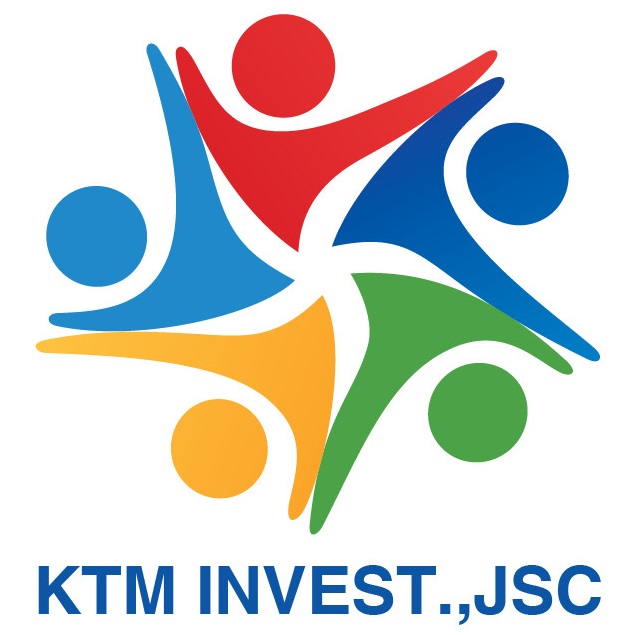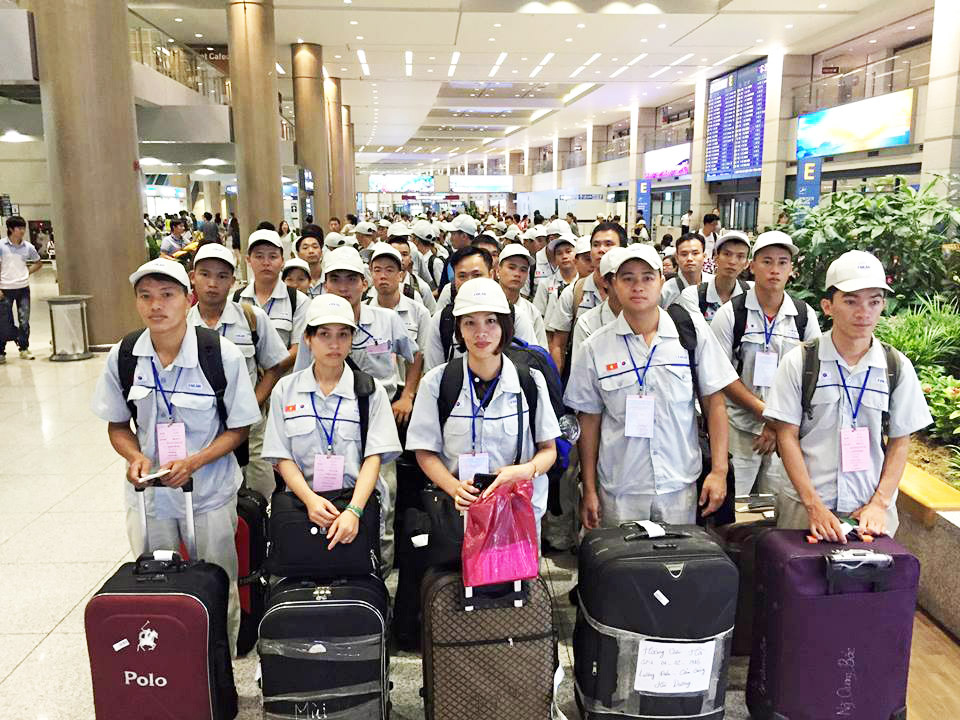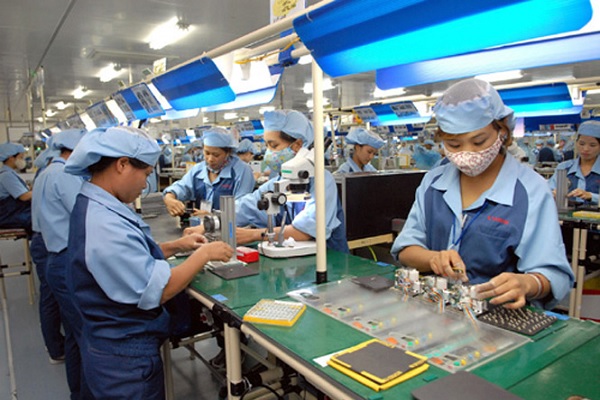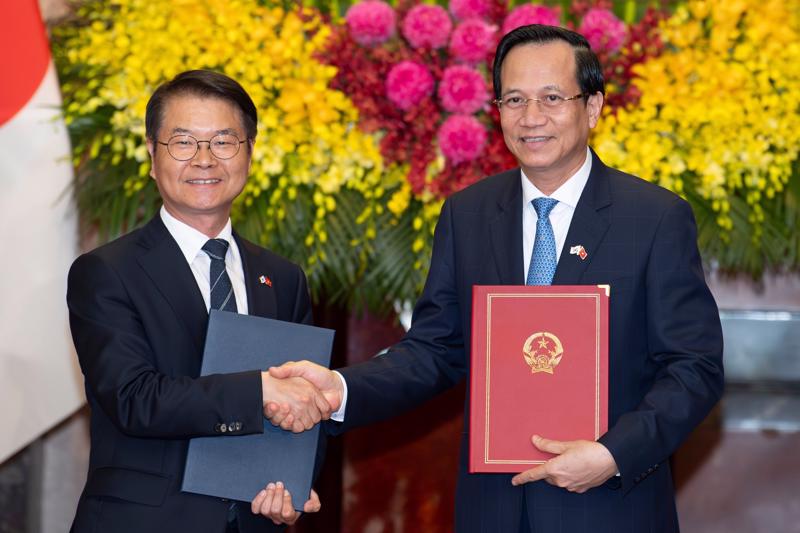.webp)
After the COVID-19 pandemic was gradually brought under control, both Vietnam and South Korea actively promoted cooperation and the entry of laborers. According to the announcement by the Ministry of Labor and Employment, in 2023, South Korea plans to hire approximately 110,000 immigrant workers to work in industrial and agricultural facilities.
However, sources from relevant industries have stated that the actual demand for labor is much higher than what can sustain the operations of businesses. The shortage of labor in South Korea stems from various reasons, including an aging population, local workers refusing to work in manual labor-intensive industries, strenuous labor, or agriculture.
In response to the severe labor shortage within the country, the South Korean government has recently made efforts to implement various policies to attract foreign workers and ensure sustainable development for the economy.

Vietnamese workers undergo immigration procedures at Incheon Airport, South Korea.
Implementation of Vietnam's labor support and consultation activities in South Korea
South Korea's Foreign Labor Policy Committee recently announced the improvement of the foreign labor recruitment permit system (EPS program) in which Vietnam participates. Under this, South Korea actively amends regulations to promote the formation of skilled foreign labor to meet the practical needs of businesses. They diversify the methods of employing foreign labor to address the labor shortage in remote areas and enhance residency support to facilitate the social adaptation of foreign labor.
Recognizing South Korea's needs, relevant Vietnamese authorities have been actively implementing training and support programs since mid-2022 to expedite the number of workers allowed to enter South Korea. In addition to continuing to promote increased entry of EPS laborers, Vietnam's authorized agencies continue to negotiate with relevant South Korean entities to relax conditions for shipbuilding laborers to enter South Korea promptly. They also strengthen cooperation with the Fisheries Association and domestic enterprises to protect the rights and legitimate interests of fishermen, as well as facilitate the connection and support of localities in sending laborers to South Korea under seasonal labor programs, especially those localities in the process of signing cooperation agreements.
To better support Vietnamese workers working in South Korea, the Vietnamese Labor Management Office in South Korea continues to coordinate with the EPS Management Office and various Foreign Labor Support Centers to implement diverse methods of disseminating information, providing advice, and supporting workers through appropriate means (including expected meetings at centers, cultural and sports events of localities and associations, and large-scale campaigns to promote information and legal regulations).
As a result, in 2022, under the EPS program, Vietnam sent nearly 9,000 workers out of the total target of 70,000 for 16 participating countries. Mr. Pham Minh Duc, Head of the EPS Office in South Korea, stated that in 2023, South Korea announced a target of granting permits to 110,000 workers from 16 countries. Vietnam aims to send 10,000 workers to South Korea.
The EPS Office will focus on coordinating with the Labor Management Board and the Vietnamese Embassy in South Korea to organize orientation sessions for all incoming workers. Through these sessions, workers can quickly integrate into life and work in South Korea. Continuing to coordinate with Foreign Labor Support Centers in South Korea, they will organize meetings, dissemination campaigns, and legal awareness programs for workers.
These activities will help workers comply with South Korean laws, fulfill their contracts, and return home on time after contract completion, thereby reducing the number of unauthorized workers in South Korea. Additionally, the EPS Office will continue to implement management measures and support for laborers, especially those facing difficulties, contract disputes, challenges in daily life, or encountering risks while working in South Korea. This will help workers have a stable and secure life and work in South Korea.
In the first entry phase after the Lunar New Year in 2023, the Foreign Labor Center organized the entry of 138 workers into South Korea and conducted two education and orientation training courses for 800 workers. They also received applications from nearly 6,000 workers who met the requirements of the Korean language test and conducted screenings before introducing them to Korean employers.




